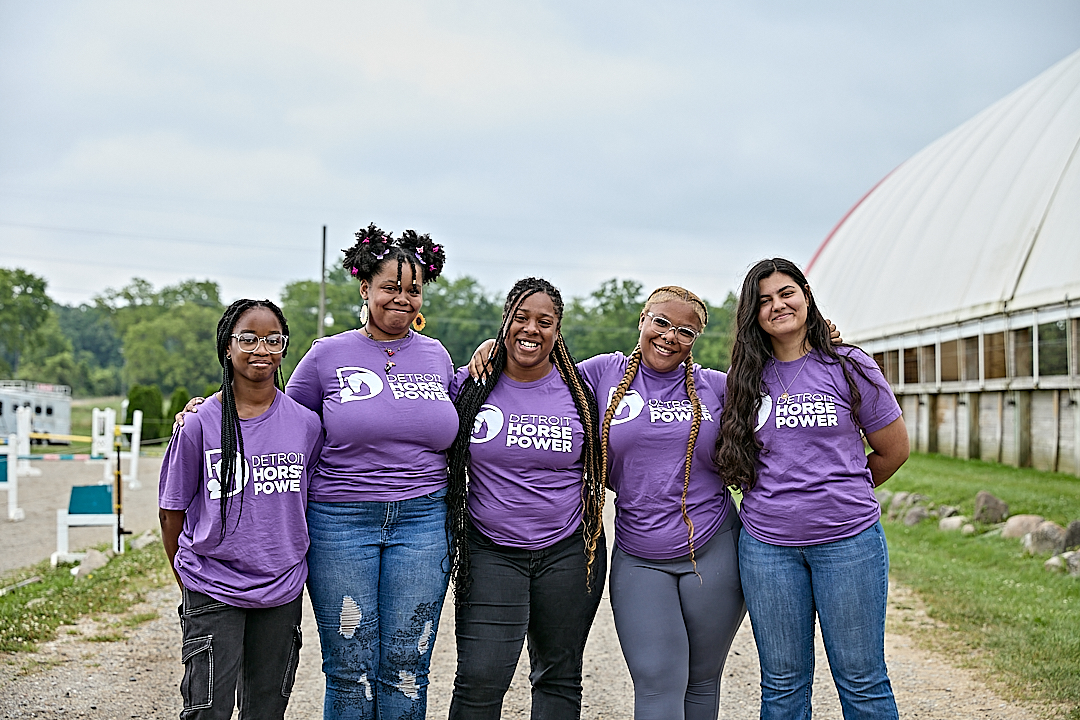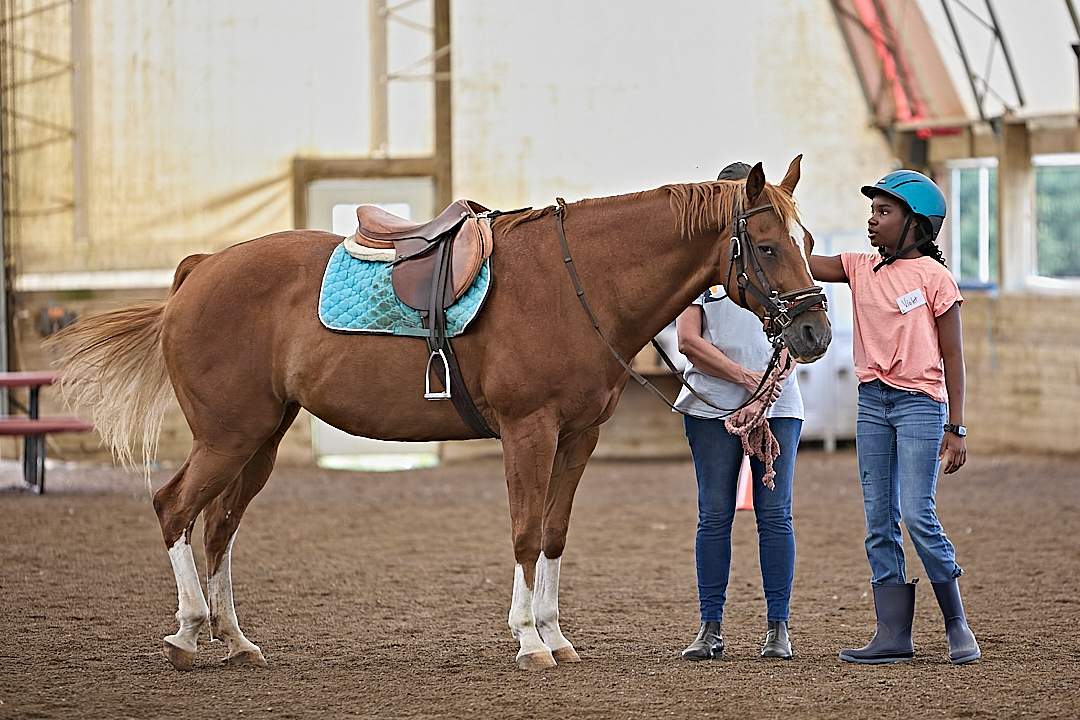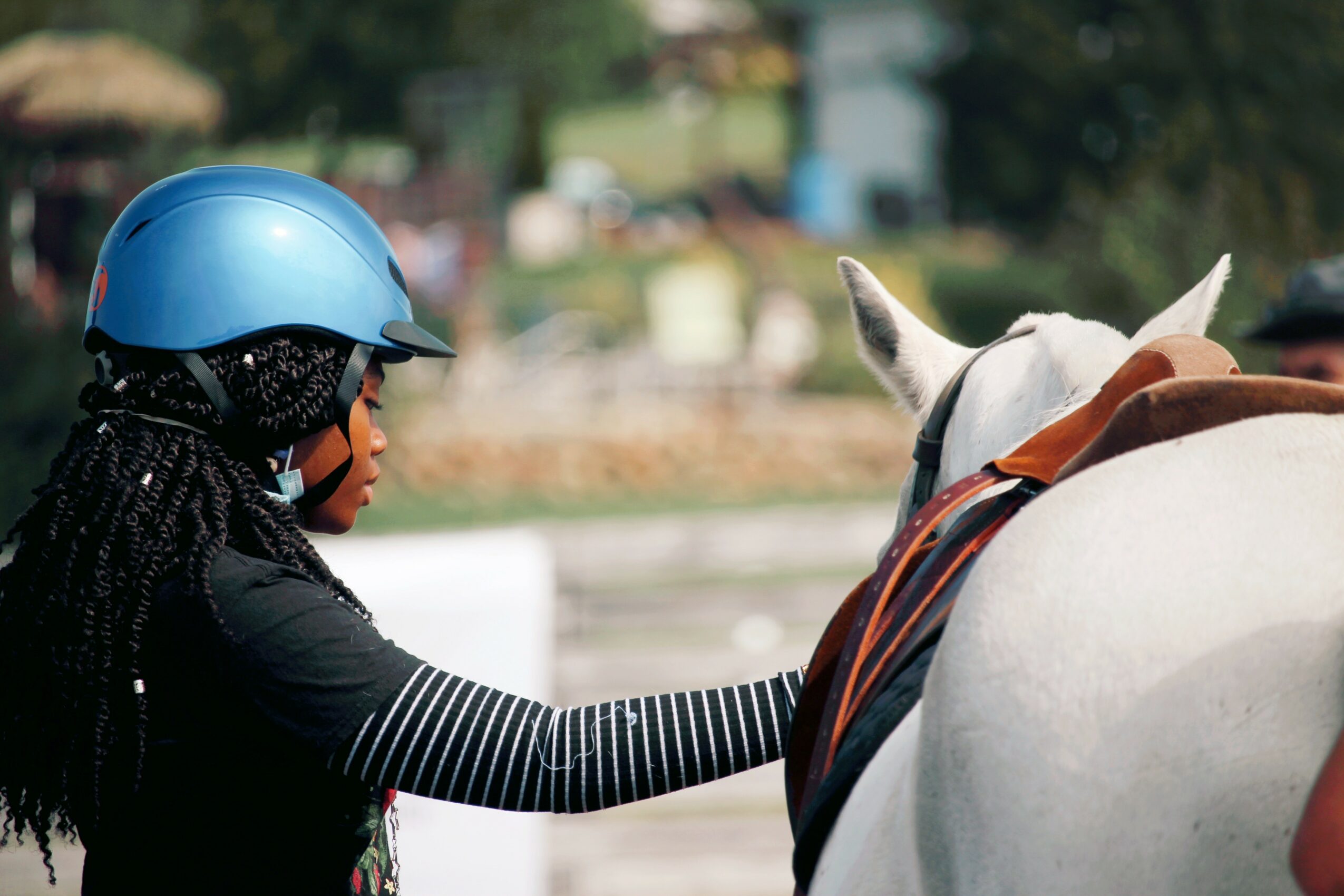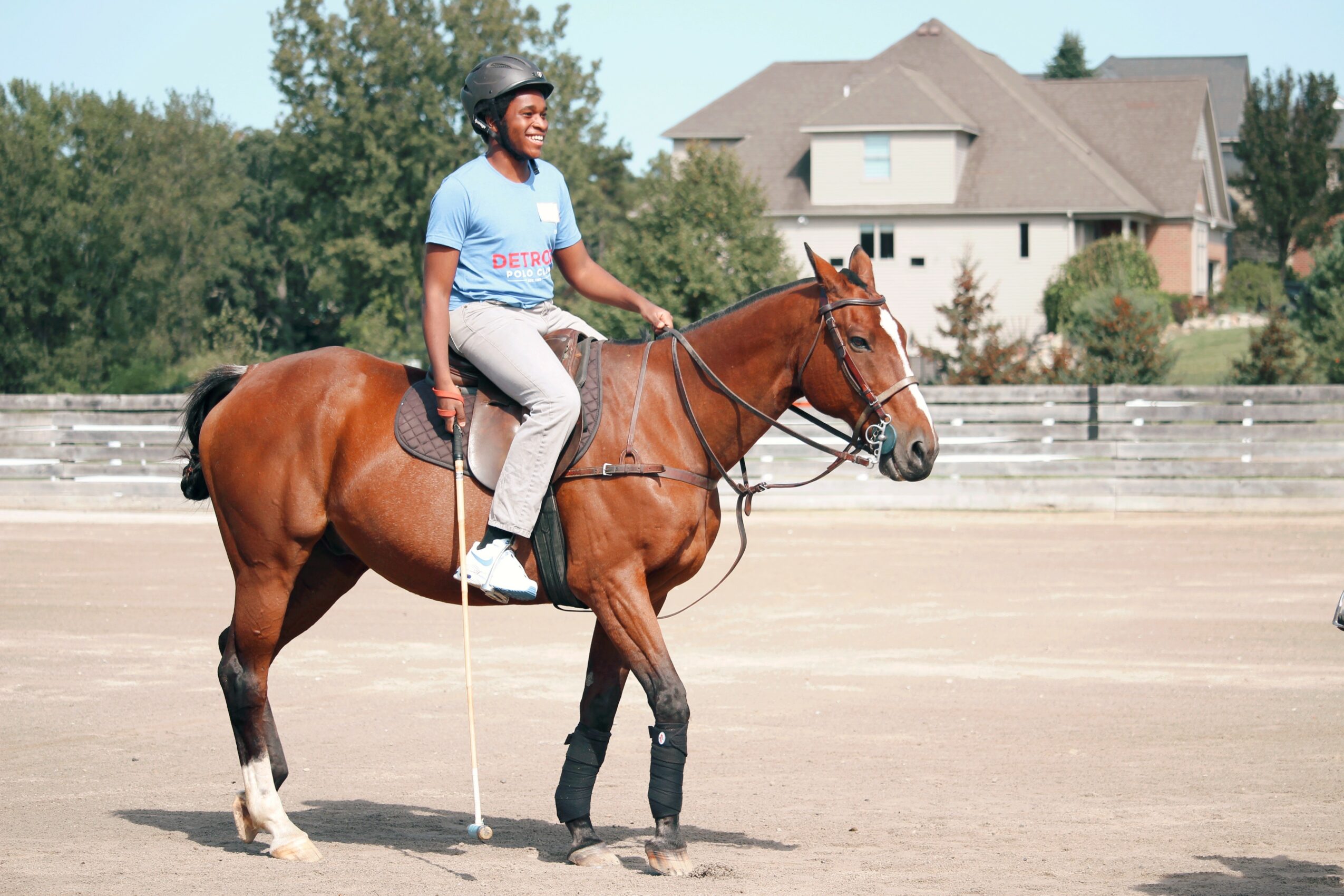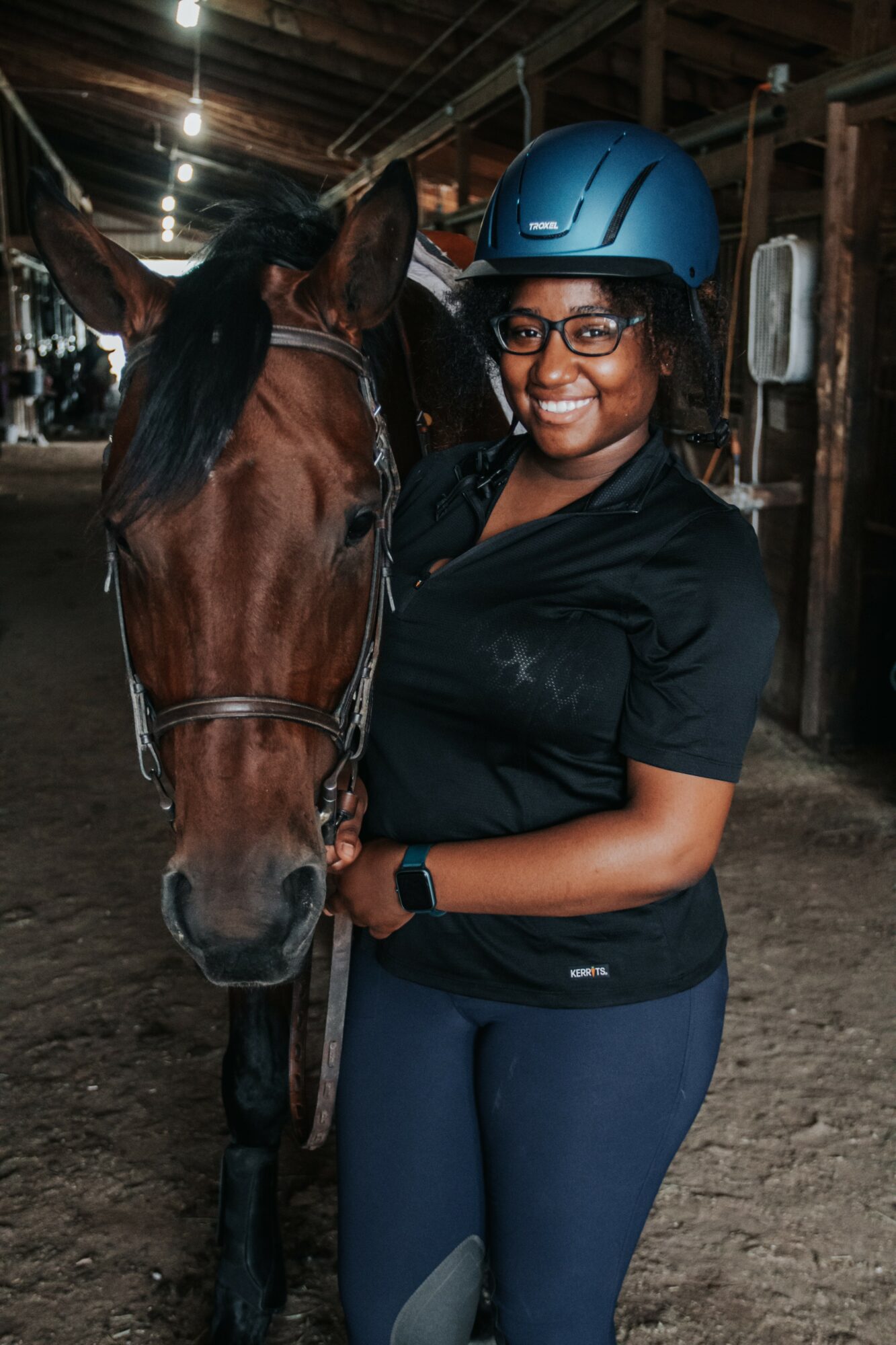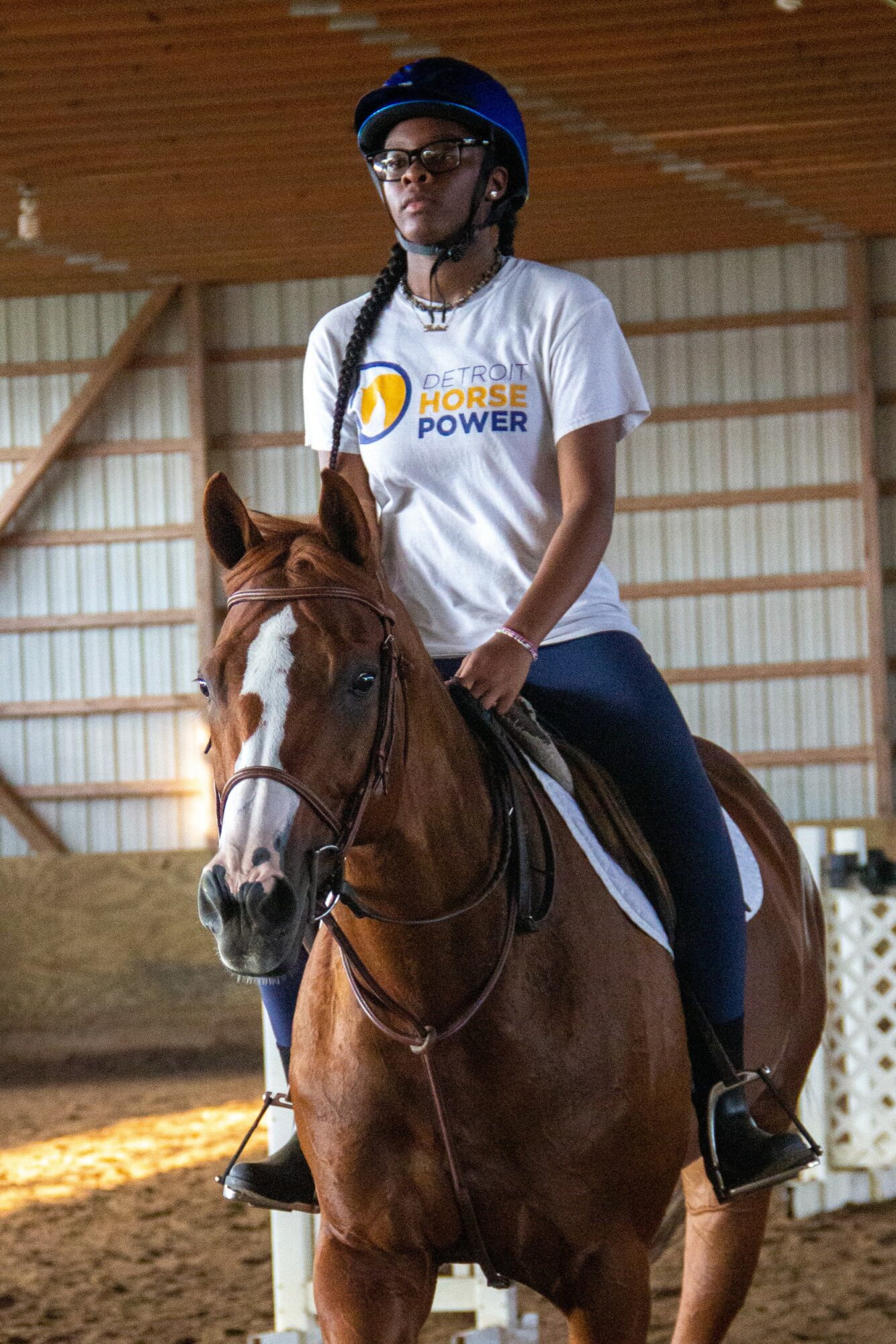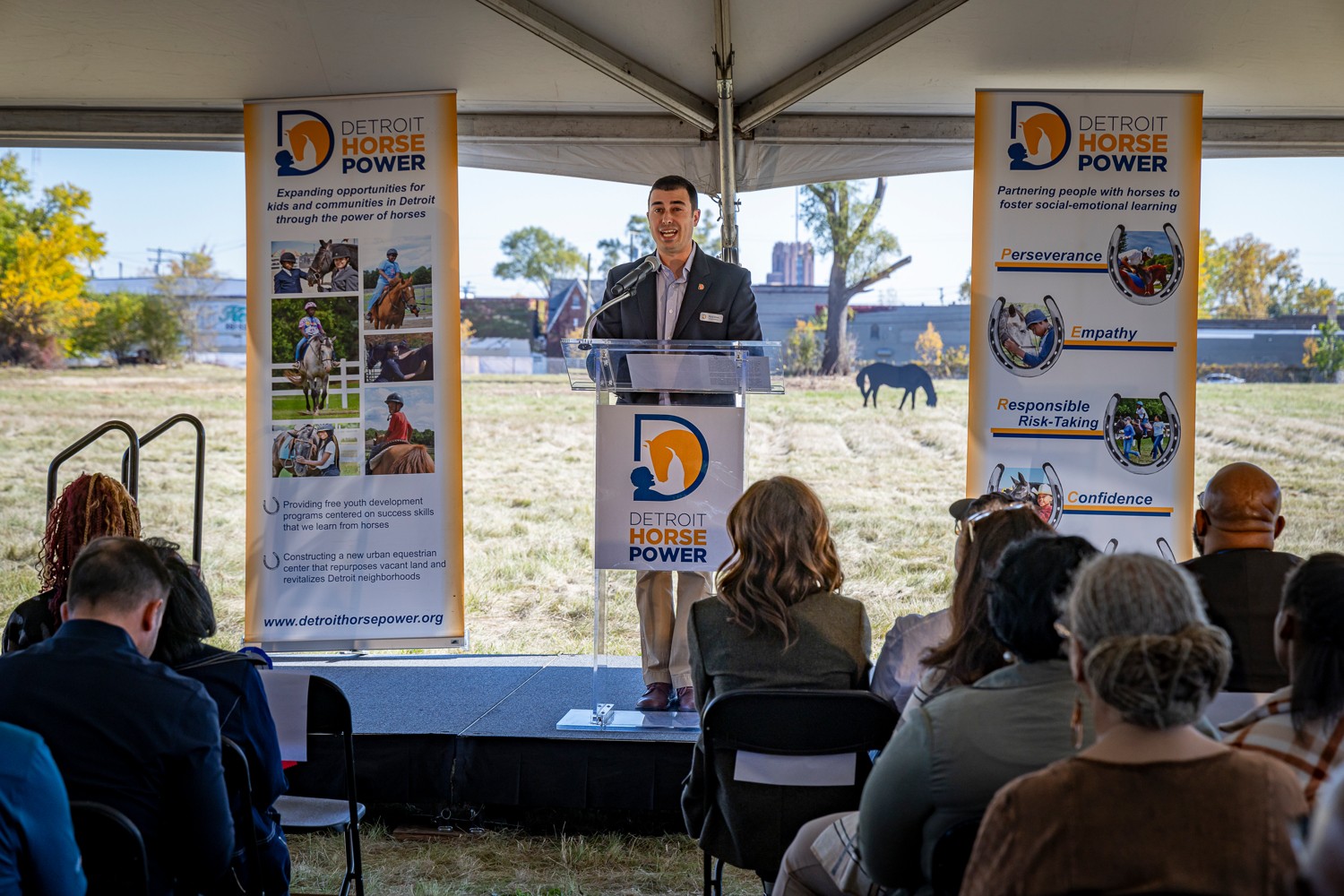

Today we’d like to introduce you to David Silver.
Hi David, we’re thrilled to have a chance to learn your story today. So, before we get into specifics, maybe you can briefly walk us through how you got to where you are today?
I grew up in suburban New York, knowing next to nothing about Detroit. But horses were an all-consuming part of life. My mom’s infectious love of horses was passed down to me and my younger sister at an early age. I grew up with the immense privilege of owning my own horse, having access to top instructors, and traveling the east coast to compete in the sport of Three-Day Eventing.
During my undergraduate experience at Dartmouth College, I took a step back from that intense riding relationship, which gave me space to pursue other opportunities that were important to me. My political science coursework pointed to the vast inequities in our society and the importance of early investment in under-resourced children to develop both academic and non-cognitive skills to improve life outcomes.
Teach For America (TFA) offered me the opportunity to join the front lines of the fight for equal opportunity in education. As an applicant, I received a big map of the dozens of regions where you can be placed and I quickly gave high rankings to big cities I knew and loved. I remember hesitating before giving Detroit a mid-tier position, thinking, “If I’m truly committed to opening doors for students in need, Detroit is as good a place as any.” As luck would have it, Detroit was a priority region for TFA in 2012 and I have lived in the city ever since.
As a 4th and 5th grade teacher at Burns Elementary/Middle School, my growth as an educator was strongly influenced by professional development provided by TFA and the Masters of Education classes I took at night through Oakland University. They reinforced research on social-emotional learning and the importance of character skills that underly success in school and in life. With echoes of my Dartmouth classwork, my second year of teaching was infused with conversations about traits like self-esteem, grit, and compassion, among others.
These conversations with my students prompted me to reflect on how I had the opportunity to develop these skills during my formative years. Suddenly, my experiences with horses were at the center of my own conversations about personal growth and skill-building. It was only through this new lens and the space to see my equestrian experiences from a distance that I could articulate how seeing my hard work pay off at my first international competition, rebounding from repeated setbacks after injuries, and the pain of letting go of an old friend, among so many more experiences had equipped me with an internal toolkit I could apply to any new obstacle in my path.
My realization was that research shows these social-emotional skills impact life outcomes. Horses taught me these valuable lessons, and kids growing up like my students in Detroit would ordinarily never have access to the benefits that horses provide. This inequity seemed pressing for me to address not because there was something deficient about my students, but because I was privileged to have opportunities that I knew would help them overcome the far greater adversity on their path to success. Inspiring precedents in other cities and Detroit’s vast amount of open space, resulting from the demolition of vacant buildings, also helped fuel my vision for an urban equestrian center where these opportunities could take root in Detroit’s future.
Can you talk to us a bit about the challenges and lessons you’ve learned along the way. Looking back would you say it’s been easy or smooth in retrospect?
Since 2015, Detroit Horse Power has been bringing Detroit youth from the city to partnering barns across southeast Michigan that generously donate the use of their space and their horses. It has been phenomenal to see our free summer horse camps and after-school program expand to average more than 100 participants across our recent program cycles thanks to outstanding donors, particularly from the equestrian community. We love to see students grow in their riding and horsemanship, but even more important is their ownership of the character traits that are at the heart of our model – Perseverance, Empathy, Responsible risk-taking, Confidence, and Self-control (PERCS). Our custom-developed curriculum prompts students, staff, and volunteers to reflect on how our experiences with horses strengthen these research-validated skills and how we can apply them into our everyday lives. Despite the long distances we have to travel and the limits on our access to horses in this current state, our students have demonstrated tremendous growth and are expected to graduate high school with a choice of college or career.
It took many years of building relationships with residents and negotiating with property owners to find the right vacant land site to build our future urban equestrian center. In October 2019, the Detroit Public Schools Community District Board of Education voted to approve our control of a 14-acre demolished school site on Detroit’s west side for Detroit Horse Power to develop into our future facility.
The pandemic created a significant hurdle for us to overcome, but we have made steady progress toward these big goals. Detroit Horse Power completed the architectural plans with ongoing community feedback, received site plan approval, closed on purchasing the property, and raised more than $9 Million for construction. All of this progress allowed us to bring over 300 stakeholders together for a moving groundbreaking ceremony in October 2024 as we prepare for the construction phase that will lead to our 2026 grand opening. We cannot wait to establish this permanent home to scale our capacity to serve far more youth participants in an environment that reflects their voice and identity and strengthens the fabric of the neighborhoods in which they grow up.
Appreciate you sharing that. What should we know about Detroit Horse Power?
Detroit Horse Power has brought hundreds of Detroit youth to partner horse barns outside the city for free summer horse camps and an after-school program since 2015. These programs teach how to ride and care for horses in order to develop critical character skills – Perseverance, Empathy, Responsible risk-taking, Confidence, Self-control (PERCS). Detroit Horse Power is also prepared to transform a 14-acre demolished Detroit school site into the largest urban equestrian center in the country. Completing this project by 2026 will increase the scale and accessibility of Detroit Horse Power’s youth impact program and strengthen the Detroit neighborhoods where students grow up.
Networking and finding a mentor can have such a positive impact on one’s life and career. Any advice?
As a former elementary school teacher who grew up riding horses, I am so lucky to have countless mentors who have poured into me to help Detroit Horse Power get to this exciting place. I am a bog believer in putting good energy out there, and good things tend to come back. I generally say ‘yes’ to every opportunity I can share about Detroit Horse Power and learn from others – whether that is a pitch competition, fellowship, networking event, etc.
Contact Info:
- Website: https://www.detroithorsepower.org
- Instagram: https://www.instagram.com/detroithorsepower
- Facebook: https://www.facebook.com/dethorsepower
- LinkedIn: http://linkedin.com/company/detroit-horse-power/
